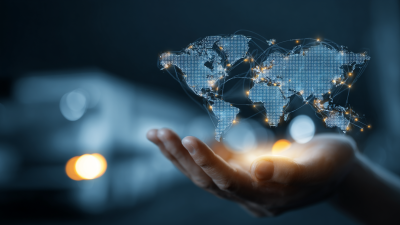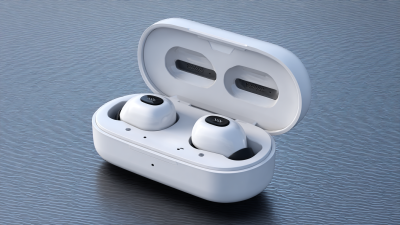Exploring the Benefits of Electric Bikes for Adults in Urban Sustainability
In recent years, urban sustainability has become a pressing priority for cities around the globe, prompting innovative solutions to address environmental concerns and enhance the quality of life for residents. One such solution gaining popularity is the electric bike as a preferred mode of transportation for adults. The electric bike for adults presents a range of benefits that not only contribute to individual well-being but also align with the overarching goals of sustainable urban development. These bikes reduce reliance on fossil fuels, minimize traffic congestion, and decrease emissions, making them an eco-friendly alternative to traditional vehicles.

Moreover, they promote active lifestyles, enabling users to navigate urban environments efficiently while reducing their carbon footprints. This exploration of electric bikes will illuminate how they serve as a catalyst for sustainable transport and highlight the numerous advantages they offer to adults seeking greener commuting options.
The Role of Electric Bikes in Reducing Urban Traffic Congestion: A Data-Driven Analysis
 Electric bikes (e-bikes) are emerging as a pivotal solution in reducing urban traffic congestion, with the potential to reshape city transport dynamics. According to a report from the Institute for Transportation and Development Policy (ITDP), cities that promote e-bike adoption could see traffic congestion decrease by up to 25%. This significant reduction stems from the ability of e-bikes to replace short car trips, which currently account for around 40% of urban vehicle traffic, as highlighted by the U.S. Department of Transportation.
Electric bikes (e-bikes) are emerging as a pivotal solution in reducing urban traffic congestion, with the potential to reshape city transport dynamics. According to a report from the Institute for Transportation and Development Policy (ITDP), cities that promote e-bike adoption could see traffic congestion decrease by up to 25%. This significant reduction stems from the ability of e-bikes to replace short car trips, which currently account for around 40% of urban vehicle traffic, as highlighted by the U.S. Department of Transportation.
Moreover, a 2021 study published in Environmental Science & Technology found that implementing e-bike share programs can lead to a 15% decline in car usage in urban areas, effectively alleviating road congestion and lowering carbon emissions. By providing a faster, more eco-friendly alternative for commuting, e-bikes encourage a shift away from conventional vehicles, contributing significantly to smoother traffic flows and reduced pollution levels. As urban populations continue to rise, integrating e-bikes into the transportation ecosystem offers a promising pathway towards sustainable urban centers.
Environmental Impact of Electric Bikes: Reducing Carbon Emissions by 50% Compared to Cars
Electric bikes (e-bikes) are emerging as a viable solution for urban mobility, offering significant environmental benefits. According to a recent report from the International Council on Clean Transportation, e-bikes reduce carbon emissions by an impressive
50% when compared to conventional cars. This substantial reduction can be attributed to their reliance on electricity rather than fossil fuels, making them an eco-friendly alternative for daily commuting in cities teeming with traffic congestion and pollution. By replacing short car trips with e-bike rides, we not only decrease our personal carbon footprint but also contribute to a broader movement towards sustainable urban living.
Tips: For those contemplating the switch to e-bikes, consider the range and battery life that best meet your commuting needs. Many modern e-bikes offer extended battery life, enabling longer trips without the hassle of recharging frequently. Additionally, investing in a quality lock is crucial to safeguard your e-bike while parked in urban environments.
Furthermore, e-bikes can contribute to healthier living. A study by the European Cyclists' Federation revealed that the physical activity involved in riding e-bikes can lead to an average increase of
30 minutes of exercise per week. This not only aids in reducing health risks associated with sedentary lifestyles but also enhances mental wellbeing, creating a more vibrant urban community.
Cost Efficiency of Electric Bikes: A Financial Comparison with Public Transport and Private Vehicles
Electric bikes (e-bikes) have emerged as a cost-effective alternative in the realm of urban transportation, proving to be an economical choice compared to traditional public transport and privately owned vehicles. According to a study from the European Cyclists' Federation, commuters can save an average of €500 annually by switching from a car to an e-bike. Considering operating costs, maintenance, and fuel prices, e-bikes present a more affordable option, with an estimated cost of just 1 cent per mile, compared to 17 cents per mile for the average car.
Additionally, the total cost of ownership for electric bikes significantly undercuts that of public transportation. A report from the National Institute for Transportation and Communities notes that urban dwellers can save nearly $1,000 each year by opting for e-bikes instead of relying solely on buses and trains. This financial advantage is compounded by e-bikes’ lower environmental impact, as they yield zero tailpipe emissions, further promoting urban sustainability. The shift towards e-bikes not only fosters individual cost savings but also contributes to mitigating traffic congestion, making them a viable solution for eco-conscious city residents.
Exploring the Benefits of Electric Bikes for Adults in Urban Sustainability
| Mode of Transport | Average Cost per Month ($) | Maintenance Cost per Year ($) | Carbon Emissions (kg CO2 per year) | Average Commute Distance (miles) |
|---|---|---|---|---|
| Electric Bike | 50 | 200 | 50 | 5 |
| Public Transport | 75 | 150 | 150 | 10 |
| Private Vehicle | 150 | 500 | 1200 | 12 |
Health Benefits of Electric Bikes: Promoting Physical Activity in Urban Dwellers
Electric bikes (e-bikes) represent a transformative approach to urban commuting, especially in fostering physical activity among city dwellers. By offering a motorized boost, e-bikes lower the barrier to cycling, making it more accessible for individuals of varying fitness levels. This inclusivity is crucial in encouraging more adults to incorporate cycling into their daily routines, ultimately contributing to increased physical activity. Studies indicate that regular cycling not only helps maintain a healthy weight but also reduces the risk of chronic diseases, such as cardiovascular conditions and diabetes.
Moreover, e-bikes promote mental well-being through outdoor activity. Commuting via e-bike exposes riders to fresh air and natural surroundings, which can alleviate stress and enhance mood. These bikes facilitate a sense of freedom and independence, allowing individuals to explore their urban environments at their own pace. By integrating cycling into daily life, urban residents can enjoy these health benefits while contributing to the reduction of traffic congestion and air pollution, thus supporting a broader vision for sustainable urban living.
Health Benefits of Electric Bikes: Promoting Physical Activity in Urban Dwellers
Case Studies: Cities Successfully Implementing Electric Bike Initiatives for Sustainable Urban Development
 Cities around the world are increasingly adopting electric bike (e-bike) initiatives as a means to promote sustainable urban development. Notable examples include Amsterdam and Paris, where e-bikes have become a key component of their transportation networks. According to a report by the International Council on Clean Transportation (ICCT), e-bikes can reduce greenhouse gas emissions by up to 50% compared to car travel, making them a vital tool for cities aiming to lower their carbon footprints. In addition, studies show that cities with well-integrated e-bike schemes witness a 30% increase in cycling trips, alleviating traffic congestion and enhancing public health.
Cities around the world are increasingly adopting electric bike (e-bike) initiatives as a means to promote sustainable urban development. Notable examples include Amsterdam and Paris, where e-bikes have become a key component of their transportation networks. According to a report by the International Council on Clean Transportation (ICCT), e-bikes can reduce greenhouse gas emissions by up to 50% compared to car travel, making them a vital tool for cities aiming to lower their carbon footprints. In addition, studies show that cities with well-integrated e-bike schemes witness a 30% increase in cycling trips, alleviating traffic congestion and enhancing public health.
When implementing e-bike initiatives, cities should focus on key strategies to maximize benefits. Tip: Invest in dedicated bike lanes and secure parking to ensure safety and convenience for e-bike users. Additionally, promoting e-bike sharing programs can significantly increase accessibility, particularly for residents who may not want to invest in a personal bike. For instance, cities like Freiburg have reported a tripling of e-bike users when such programs were introduced.
Another critical element is public awareness campaigns highlighting the benefits of e-bike usage. Tip: Collaborate with local businesses to provide incentives, such as discounts for e-bike users, which can encourage more people to opt for this sustainable mode of transport. With proper planning and community engagement, cities can cultivate a thriving e-bike culture that contributes to a more sustainable urban future.
Related Posts
-

Unique Examples of Electric Bike Adult Innovations for Modern Commuting
-

Essential Checklist for Choosing the Perfect Electric Bike for Adults
-

How to Choose the Perfect Electric Bike for Adults
-

Transform Your Ride: Exploring the Benefits of Electric Bike Conversion Kits for Urban Commuting
-

Unlocking Advantages: Explore the Benefits of Best Global Sourcing for Your Business
-

Innovative Trends in F9 Tws Earbuds at the 138th China Import and Export Fair 2025



